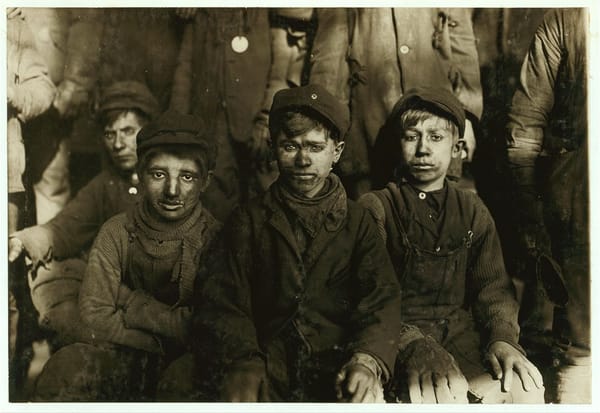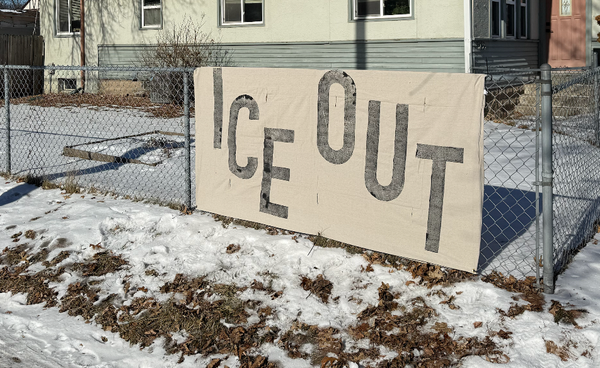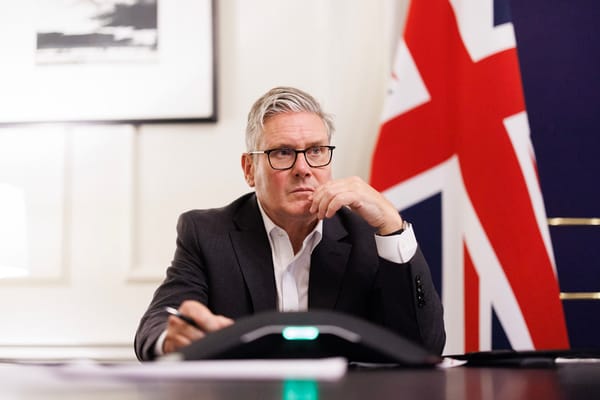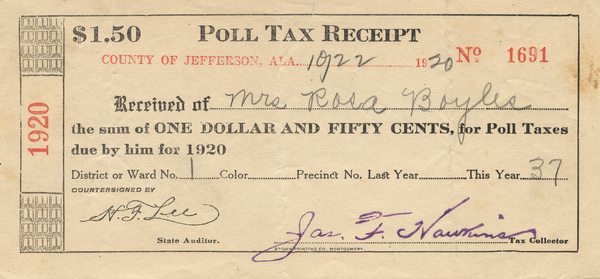We Must Reclaim a Government That Belongs to All of Us
From the White House rubble to the bottomless pit of Epstein, we are in the midst of a nationwide struggle over whose government this really is.
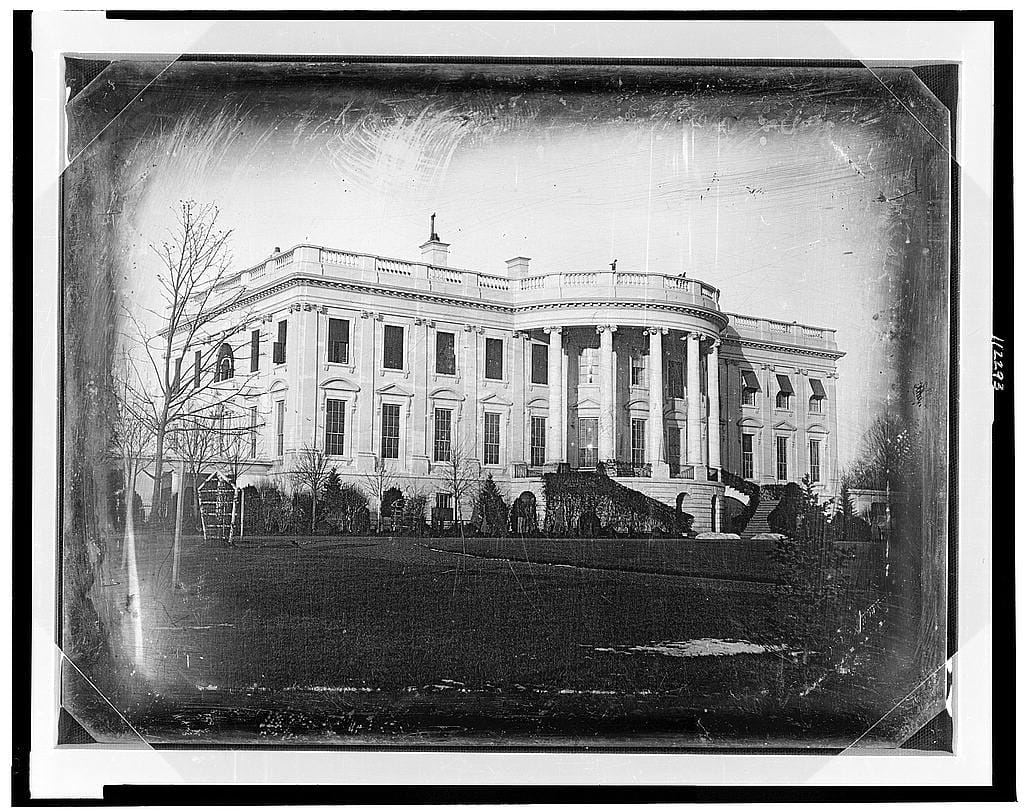
The position of U.S. attorney general has existed almost as long as our Constitution. It was established in 1789 to handle legal cases “in which the United States shall be concerned,” representing us all, for good or ill, when our federal government goes to court. “The due administration of justice is the firmest pillar of good government,” George Washington wrote to the first attorney general that year, and only “the fittest characters” should be entrusted with it.
Our 87th attorney general, Pam Bondi, does not fit this description. It was she who said the near-mythic “Epstein list,” which in all likelihood includes our sitting president, was sitting on her desk back in February, then in July said actually, there was no list. She’s overseeing the frivolous prosecution of Donald Trump’s political enemies and installed his former personal attorney for the job. And this month she personally joined the pressure campaign in the White House Situation Room—you know, that place where other presidents have handled wars and assassination attempts—to try to convince some congressional allies not to vote to release the Epstein files.
Ideally speaking, “the attorney general is the people’s attorney, not the president’s attorney,” as former Vermont Sen. Patrick Leahy put it in 2017. But Trump and Bondi clearly agree that she’s there to work for him, to protect him, to spare him from the very law enforcement that she is responsible for. It hearkens back to the original model of attorney general as legal representative to the king.
This is the rotten core of Trump, beneath all the makeup and slurred words and mafia-boss cruelty: He thinks the government and all of its personnel, its buildings and its power are his.
The rubble of the East Wing, which was destroyed earlier this fall with the deliberation, public input and care given to your average sand castle demolition, made this unmissably clear. But this is the thread that runs from Jan. 6, 2021, to the billions of dollars in federal spending held hostage and the hundreds of thousands of civil servants fired this year.
It is the connective tissue between his talk of an illegal third term, his persecution of political enemies, his mobilization of armed forces against immigrants and citizens, his potential war for no reason with Venezuela. He thinks those are his employees, his generals, his military, his agencies, his money, to wield as he pleases.
The problem, as is so often true, is bigger than Trump as well. When the Supreme Court’s Trump-loving majority makes decisions without explanation, ignores precedent, explicitly calls for precedents to be discarded, and abandons some the most important laws in our history, it’s because they think the Constitution and the law belong to them.
When red-state governments gut the ballot initiative, ignore voters’ decisions, deprive their constituents of representation, and gerrymander districts to choose their voters instead of the other way around, it’s because those officials think they have the power, not us.
When Congress refuses to perform oversight of the other branches of government and gives up whatever power it has left, it’s because the Republican majority thinks they owe us nothing.
And yes, when Senate Democrats betray the fight for the barest semblance of a functional government so they could fly home for the holidays and continue to enjoy the filibuster—for what, exactly?—it’s because their own comfort and power are their priorities.
All of these elected officials are betraying the founding principle of popular sovereignty in this country, an idea that stretches back millennia: The people are the source of a government’s power. “In free Governments the rulers are the servants, and the people their superiors & sovereigns,” as Benjamin Franklin put it in 1796 (per James Madison’s notes of the Constitutional debates).
In other words, our leaders work for us. The multitrillion-dollar institution collectively known as the federal government belongs to all of us, not to just some of us, and certainly not to our elected leaders.
The buildings belong to all of us, to be used for our common benefit and loaned out for a short while for that purpose. The White House, with all of its history, its shame and triumph, its complicated whole, is the People’s House.
Military and civil personnel may work under their managers and report to their Cabinet officials and ultimately to the president, but those employees don’t work for those officials. They work for the real boss, the American people.
The money belongs to all of us, too. It must be collected by our public employees, budgeted and divvied up by our representatives, and spent by our president as instructed by them.
None of this should be up for debate. As deeply flawed as it has been in the execution, this principle was voiced by the Founders in 1776, by George Washington in 1796, by Abraham Lincoln in 1863. It also doesn’t need to be written down in legal documents or decisions to be true; the power of the people is a fundamental law, one that holds even when ignored or disbelieved.
Nevertheless, we all must speak up for this truth. As we can see, monsters run loose when we forget it.
The two record-breaking No Kings protests this year were shining examples of how millions of us are reclaiming our government. More recently, as precinct maps filled with blue and the reach of Nov. 4’s Democratic wave became clear, a familiar theme also emerged among candidates’ victory speeches from one end of the country to the other.
“I’m working for everyone, every single one of you,” said New Jersey Governor-elect Mikie Sherrill. Her Virginian counterpart, Abigail Spanberger, said, “I will listen to you. I will work for and with you.”
New York City Mayor-elect Mamdani Zohran put it this way: “For as long as we can remember, the working people of New York have been told by the wealthy and the well-connected that power does not belong in their hands. … Tonight, against all odds, we have grasped it.”
I’ve also been thinking back to when I visited Washington, D.C., for the first time 17 years ago. I snapped a million photos of everything in sight as we crisscrossed the National Mall and the Potomac. But it’s just one blurry, grainy snapshot of a backlit anecdote in a White House visitor exhibit that has stuck in my memory.
“‘I wonder who lives there,’ Coolidge overheard someone remark,” according to the sign, which was referring to the White House and former occupant Calvin Coolidge. “‘Nobody,’ he answered. ‘They come and go.’”
Featured image is President's house (i.e. White House) in 1846, by John Plumbe

